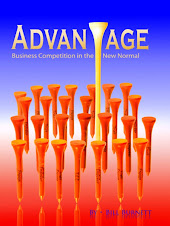Over the past several weeks I have received multiple email solicitations for a conference on Emotional Intelligence. Then today I received a snail mail package for a different conference also on Emotional Intelligence. This must be the latest management fad. I laughed when I got it, wondering what possible mailing list might have made the assumption I might be the right target. This focus on Emotional Intelligence is a dog hunting its own tail.
When I opened it I found this statement:
“Emotional Intelligence is synonymous with good leadership. It consists precisely of those social and emotional skills necessary to motivate and inspire subordinates, to manage with understanding and respect, and to resolve conflicts and ease tensions as they arise.”
Well, those who know me well won’t be surprised that there is not a single sentence in that paragraph which I think is correct.
“Emotional intelligence is synonymous with good leadership”? Everyone has emotional intelligence just as everyone has the other kind of intelligence. I think they might mean high EQ = leadership. But in what way? The mailing suggests it is partially this skill “to resolve conflicts and ease tensions as they arise”? I knew a manager who was very good at resolving conflicts and easing tensions. He couldn’t stop himself. The instant conflict arose he would jump in to mediate. He is probably the most emotional intelligent person I know. But he was a terrible leader.
That’s because conflict isn’t always a bad thing. Particularly when the conflict is around getting to the true nature of a problem. Christopher Morley wrote: “There is no squabbling so violent as that between people who accepted an idea yesterday and those who will accept the same idea tomorrow”.
The ideas Dr Morley refers to are ideas about change. The truth is, it is natural for us, as humans, to react negatively to change. It is how our brains work and it is what allows us to repeat success behaviors. But change is also natural and necessary, and conflict is one way we overcome the natural tendency to resist change. With conflict you do get tension. Great leaders allow conflict and tension to arise. They also give conflict time to resolve itself. You only need to step in when the conflict becomes damaging. A lot of conflict has a personal element to it, but that doesn’t mean it is necessarily damaging.
The mailing states that (high) Emotional intelligence “consists of those social and emotional skills necessary to motivate and inspire subordinates.” The word ‘subordinates’ is telling when used with how people become motivated and inspired. Great leaders do not motivate with fear. Bad managers, however, often do motivate with fear. But fear tends not to be to inspirational. "The beatings will stop when morale impoves!"
Great leaders know there is only one source of motivation that works, and that's self-motivation. But more importantly, great leaders know that almost everyone is capable of being self-motivated. All a leader needs to do is align the individual’s personal sense of self-worth, with the work they do.
A great leader creates an environment where Trust, Engagement, and Empowerment define the workplace. Ideas like “managing with understanding and respect, and … easing tensions” say that we should all play nicely together. These ideas suggest it is most important that if things get a little tense, we nip that in the bud before we move on.
What great companies do, is face the truth, the hard truth, head on. Truth seeking is messy. Misunderstandings and tensions are part of that. But in environments of Trust, Engagement, and Empowerment, these misunderstandings and tensions resolve themselves, and they are not important.
Emotional Intelligence is not synonymous with leadership.
Saturday, May 16, 2009
Emotional Intelligence
Labels:
culture,
emotional,
Empower,
Engage,
environment,
innovation,
leader,
leadership,
motivation,
role of management,
Trust,
truth,
workplace
Subscribe to:
Post Comments (Atom)






2 comments:
Bill, You're absolutely right. Emotional intelligence while an interesting concept has been misunderstood and misused by too many management gurus intending to use the popularity of Dan Goleman's book to build something new to sell.
Jack Trytten
Insightdirection.com
Emotional intelligence is the ability to understand your own emotions and those of people around you. Emotional intelligence is sometimes referred to as emotional quotient or emotional literacy. Individuals with emotion intelligence are able to relate to others with compassion and empathy, have well-developed social skills and use this emotional awareness to direct their actions and behaviour.
Post a Comment